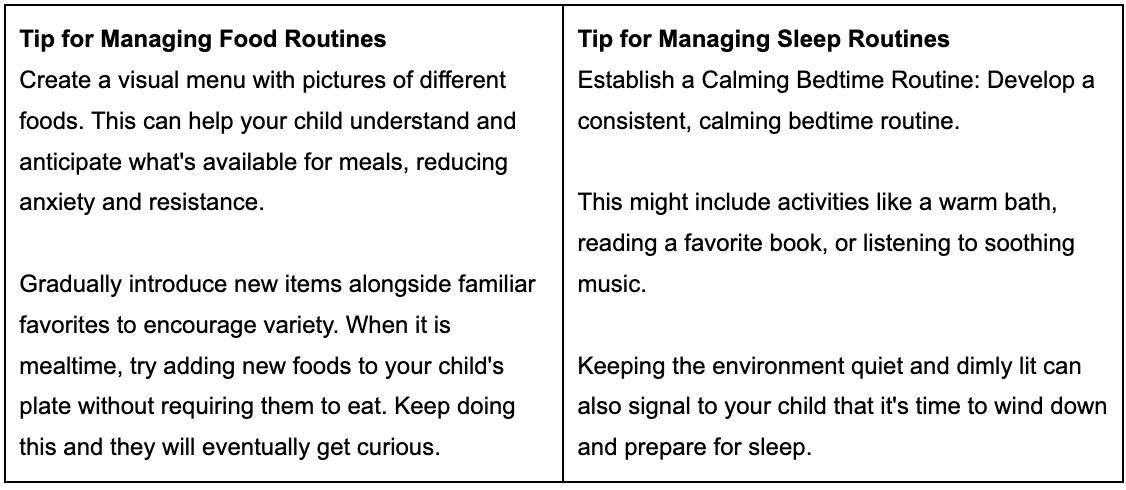|
Understanding and managing the daily routines of children with developmental disabilities, especially around food and sleep, can be a complex and often challenging journey.
At EY Behavioral Services, we've observed that issues in these areas are not just about the acts of eating or sleeping; they're deeply intertwined with the overall behavioral patterns and needs of your child.
Food-related challenges may range from sensory sensitivities to restrictive eating habits. It's not uncommon for children to show strong preferences or aversions to certain textures or flavors, which can make mealtimes stressful.
Not to mention foods with low nutritional value, high sugar content, and other ingredients ( like dyes, and synthetic ingredients) can increase the chances of behavior challenges.
On the other hand, sleep disturbances, including difficulty falling asleep or staying asleep, can significantly impact your child's and your family's well-being.
Typically our approach with our clients focuses on understanding these challenges in the context of their child's overall behavior and daily routine. We believe in a holistic strategy, where interventions in food and sleep routines are not isolated but are part of a comprehensive behavioral plan. Here are some tips to help manage your child's food and sleep routines:

By addressing these issues within the broader context of behavior and daily routines, we aim to create a more harmonious and manageable day-to-day experience for both you and your child.
Stay tuned for next week's newsletter, where we will explore the challenges that holidays and changes in routine present for children with autism or other developmental disabilities.
These times can be particularly tough due to the lack of regular structure and the introduction of new activities and environments. We'll provide insights and strategies to help your family navigate these periods more smoothly.
|
